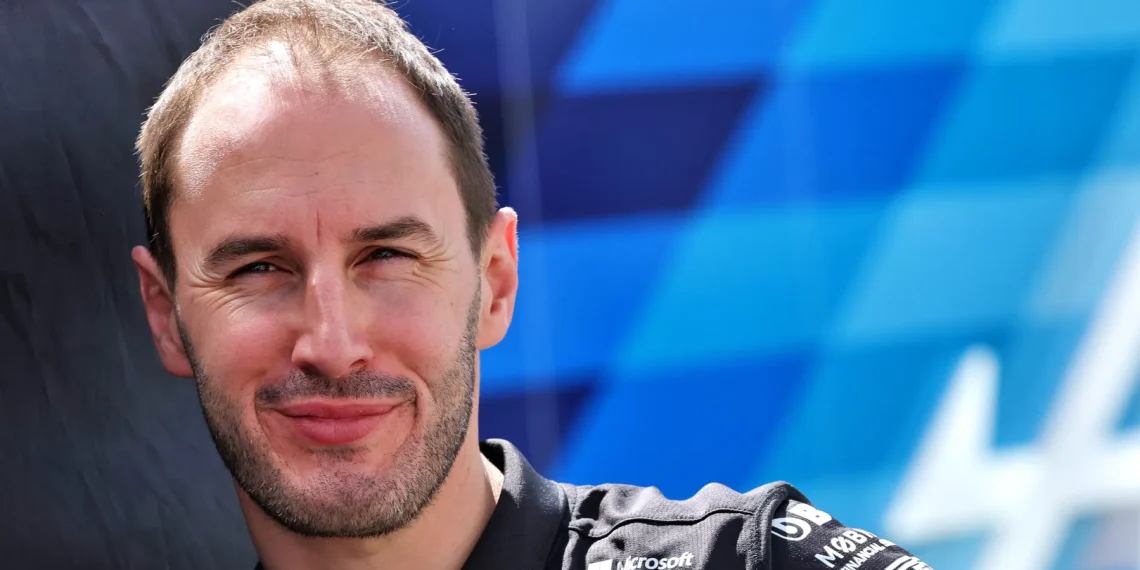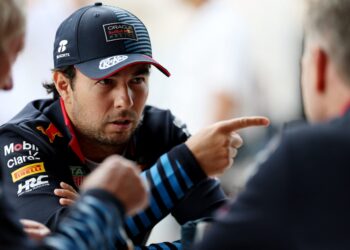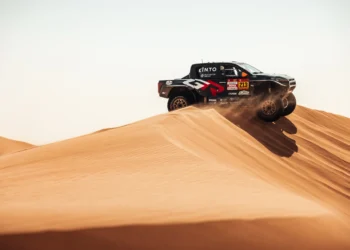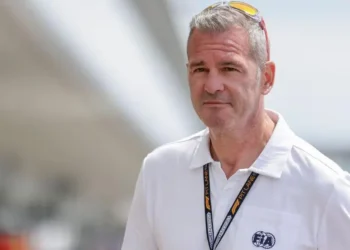Alpine F1’s new boss, Oliver Oakes, isn’t here to play politics—he’s here to get results. As the youngest team principal on the Formula 1 grid, the 37-year-old has inherited a team in transition, but instead of pointing fingers, he’s embracing the backing of Renault and pushing forward with a fresh vision for the Enstone-based squad.
While former Alpine chief Otmar Szafnauer blasted Renault’s involvement in the team—arguing that the manufacturer should “stay out and let the experts handle F1”—Oakes sees things differently. In his view, Alpine’s struggles haven’t been the result of corporate meddling but rather a lack of cohesion within the team itself.
Szafnauer’s Exit and Alpine’s Downward Spiral
Alpine’s journey under Renault ownership has been anything but smooth. After reclaiming its factory F1 outfit in 2016, Renault has undergone multiple leadership changes, with each promising a revival that never quite materialized. The team’s rebrand to Alpine in 2021 came with an ambitious “100-race plan” to return to the top, but by mid-2023, that goal seemed like a fantasy.
After disappointing results, Szafnauer was shown the door, and his parting shot at Renault’s management was scathing. “They shouldn’t meddle. Leave it! It’s so much different from a car company, you should just leave it to the experts,” he said.
But Alpine’s decline didn’t stop with his departure. The 2024 season began as an outright disaster, with the team fielding one of the worst cars on the grid. Renault Group CEO Luca de Meo responded by overhauling Alpine’s leadership, bringing in David Sanchez to head technical operations and appointing the ever-controversial Flavio Briatore as an executive advisor. By August, Bruno Famin was also out, and Oakes was handed the reins.
Oakes’ Verdict: Renault’s Support is Essential
Unlike his predecessor, Oakes isn’t interested in pointing fingers at the parent company. Instead, he sees Renault’s involvement as necessary for Alpine’s survival and future success.
“It’s easy to always point the finger at somebody who’s ‘meddling,’ but sometimes you have to ask yourself, well, why do they have to get involved?” Oakes told Motorsport.com. “Is it because we’re not handling the stuff? Is it because we really have taken our eye off the ball?”
Rather than viewing Renault’s presence as an obstacle, Oakes believes it’s about accountability. “People should also remember who pays the bills and who supports the team. From my point of view, we’re very lucky to have that support,” he emphasized.
Alpine’s Late-Season Revival: A Sign of Things to Come?
Despite a rough start to 2024, Alpine managed to turn things around in the latter half of the season. The team stunned the grid with a double podium in a chaotic, rain-hit Brazilian Grand Prix, proving that the potential was there. They followed it up with consistent top-10 finishes, clawing their way to sixth place in the Constructors’ Championship.
Oakes, who led Alpine through that resurgence, refuses to let the pressure get to him. “Everybody says to me, ‘Do you feel it like a weight on your shoulders or a pressure?’ And I really see it differently,” he said.
For him, the focus is clear: “There’s no master plan. There’s no stuff that’s been said before, ‘100 races’ and all that. We just have to get better. We have to be a well-run team.”
No Distractions, No Excuses—Just Performance
Alpine’s future has been a topic of intense speculation, with rumors swirling about power unit struggles and potential team sales. But Oakes isn’t letting outside noise interfere with his mission.
“We just have to focus on ourselves,” he insisted. “Even with all the noise about the power unit and all the talk about selling and all that sort of rubbish, I think people have already seen that we’re just not really going to be bothered by that anymore. We’re just going to keep our heads down.”
The Road Ahead: Can Alpine Climb Back Up the Grid?
With Renault’s full backing, an overhauled technical structure, and a renewed team spirit, Alpine is banking on 2025 being the start of a long-overdue resurgence. The question now is whether Oakes can do what his predecessors couldn’t—turn Renault’s investment into a genuine contender.
If the late-season surge was any indication, the team might finally be headed in the right direction. But in the high-stakes world of Formula 1, results are the only currency that matters. And for Oakes, the work has only just begun.









